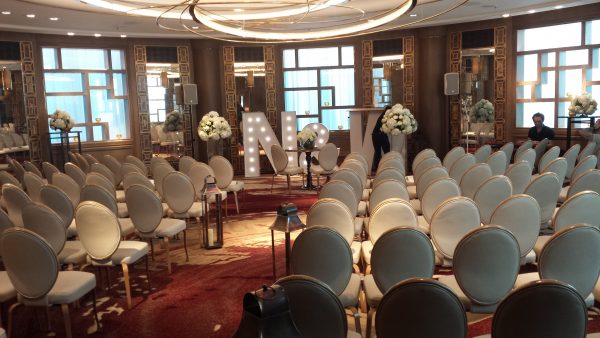
by Michael | Jun 11, 2018 | Blog
It won’t astonish anybody reading this if I state that marriage costs are steep! However, if you are just drawing up a budget, you may not realise that there are areas where you can cut a few corners.
“Guides for Brides” published the results of a recent survey. 7,500 brides were questioned during 2017, and these are some of the conclusions:
When and how
As you’d probably imagine, most weddings (60%) took place on a Saturday. Friday (at 23%) took the runner-up berth.
You might expect that most people chose to marry in a church (or other religious building). In fact, the majority (65%) chose a civil ceremony, with only 35% opting for full religious. Interestingly, 27.5% chose an unusual location – although I’m not sure what was defined as “unusual”!
Individual Items
Without being exhaustive – for example, this doesn’t take into account hairdressing/make-up, the reception and entertainment or wedding transport as individual items – some major areas of expenditure are as follows:
- the venue – probably one of your major outlays. The average cost of this was £4,450.
- the wedding dress – this could cost around £2,000, with suits coming in at £585.
- the wedding cake: £245
- flowers: £960
- honeymoon: £2,900
Budgeting and Saving
The total average budget, according to this survey, was £16,500. Some 84 guests attended weddings held during the day, and 120 in the evening.
Obviously, these figures only represent a guide. Everybody’s options and requirements are different. The prices will not remain constant.
As I indicated, by no means every expense is covered here. As a civil celebrant, I ought to point out that we have not mentioned registrars or celebrants. Both services need to be paid for! You may choose to employ a wedding planner, and they don’t come cheap.
So, by all means use this information as a starting point, but do your homework thoroughly. There are a variety of ways to reduce costs. Venues have wildly fluctuating prices, and they do not all offer the same facilities. You might hold your wedding in your garden rather than booking a venue at all.
You can choose to marry during the day – that is usually cheaper. The same applies if you avoid the most popular days (Saturday and Friday). You may prefer a buffet to silver service (or cater yourself), and that may save some expense. Offer a cash bar after providing a drink with canapés and a bottle of wine or two for the table to share. Omit canapés altogether, if you want!
You can be quite creative – and still offer a wonderful experience.
So now you’ve got some ideas, plan carefully. Then let yourself loose on those suppliers and go for the ceremony that YOU want. And if you need any more advice, just let me know!
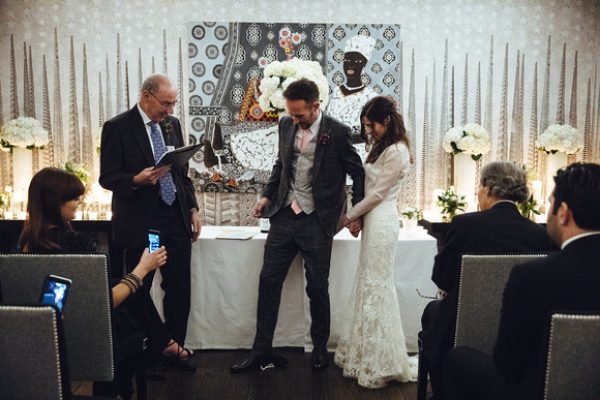
by Michael | May 29, 2018 | Blog
To many people, a wedding needs to be either fully religious or else secular (held in the register office). Well, those won’t float everybody’s boat.
Fortunately, you do have wedding choices. One is to opt for a civil celebrant .
Lots of people don’t know that civil celebrants even exist, so here are some Qs & As that should be beneficial.
Can a celebrant marry me legally?
The short answer, according to current English legislation, is no. However, there are two workable options to allow you to marry legally and also to enjoy the ceremony that you actually want.
1) you can have registrars in attendance (provided the venue has the appropriate licence); when they’ve done the legal bit, they leave and the celebrant can take over and deliver your bespoke ceremony.
2) you can marry legally (with 2 witnesses) at the Register Office the morning or day(s) before the ceremony. The celebrant can then conduct what to all intents and purposes is a full wedding or a wedding blessing ceremony (in the venue of your choice). That way, everything is covered.
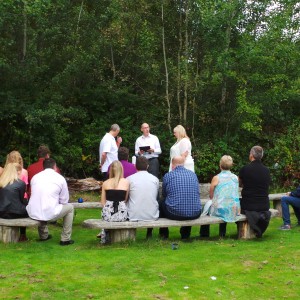
What’s the difference between the Registrar’s and Celebrant’s ceremony?
The short answer is personalisation.
A registrar will follow a script. Their ceremony must contain no religious references. The time-slot is limited (there is usually a ‘conveyor-belt’ system in operation). You won’t normally have met the registrar who will be conducting your wedding.
Certain words have to be said (to make the marriage legal).
None of the above applies to a civil celebrant. The celebrant offers personal and bespoke service. You can choose what goes into – or is left out at- your ceremony. You also have freedom of choice of venue and even hour.
Would it be a humanist service?
It depends on the celebrant. A humanist, like the registrar, is not permitted to offer any religious content. I am not a humanist, but I can conduct secular services. I tailor the service absolutely according to your beliefs and wishes. I have conducted a wonderful handfasting wedding, which was a fusion of paganism and Judaism!
How are celebrants overseen?
Many celebrants belong to a body that has strict codes of ethics (I belong to the AOIC, for example). These normally ensure that standards are being adhered to, although, in my experience, celebrants are professional, competent and trustworthy.
What about fees?
These will vary between celebrants and, obviously, need to take into account travel, possibly, board and lodging, and any unusual accessories requested.
The amount of work that will go into creating and performing a ceremony will depend on the type of ceremony required, so there’s no hard-and-fast rule. Personally, I usually give clients a firm quotation after our initial chat.
My fees include plenty of contact with clients and as many revisions to the script as we need. Naturally, I conduct the service too. There are details of what is included on my website (www.vowsthatwow.co.uk) and I always send a clear summary in my Ts & Cs, once I have had the introductory chat with my clients.
What restrictions are there to the ceremony?
Beyond what I have already mentioned (especially on the legal side), as long as your requirements are within the realms of decency and reason, you can have what you want at your wedding.
- If you want to dance down the aisle or wear Superman outfits, you can!
- You can get married where you want (within reason) – that includes outdoors, of course, and could be in a hot-air balloon, say
- Your ceremony can include your choice of music, readings, rituals and participants
The idea is that I work together with you towards your big day. The ceremony should reflect your personality and be fun (where appropriate), meaningful and memorable.
That’s where a good celebrant comes in …
Please contact me for a chat.
Featured image: www.lyndseygoddard.com
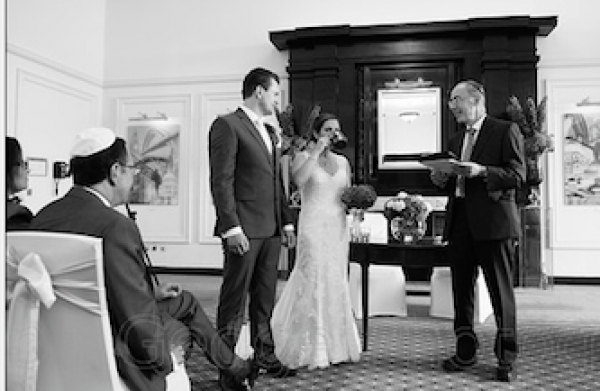
by Michael | May 22, 2018 | Blog
Is there much interest in mixed-faith ceremonies? Surely they make up only a minute proportion of marriages?
Much of my work as a civil celebrant involves mixed-faith ceremonies. And I notice that such ceremonies are now becoming mainstream.
Not long ago I read that 45% of Americans are intermarried. That includes 46% of mainline Protestants, 32% of Evangelical Protestants, 22% of Catholics and 44% of Jews. I don’t have the UK statistics, but it wouldn’t surprise me if the trend were not similar.
In any case, that means a lot of people are intermarrying.
So what do you have to think about if you are planning a mixed-faith wedding?
Disadvantages
One obvious problem can be the family (indeed, in my experience, this area can sometimes be very fraught!) .
Whether or not the family is bankrolling the wedding, and therefore ‘pulling the strings’, religion is a potential minefield. Even though the parents may not actually be all that committed service-attenders, they often have an absolute expectation of a traditional ceremony. So there’s immediate conflict and pressure on the couple.
In such cases, the couple need to acknowledge and understand the disappointment that intermarriage might cause. But compromise is possible. An example might be that the father can still walk the bride down the ‘aisle’, (even if the aisle isn’t actually in a religious building).
However, the couple must not be bullied into doing what they do not want or believe.
Another thing the pair need to consider is eventual children, and the question of how (religiously) to bring them up. I don’t think there is any categorical guidance one can really give – it’s a decision for the couple alone, but they do have to be prepared to confront it.
Advantages
Being ‘put on the spot’ by marrying means that both partners will need to sort out their religious stance. They can learn about their partner’s customs, and this will help them create a meaningful wedding ceremony – and guide them in their future spiritual life together.
They will be able to work with their celebrant to agree on a service that is in accordance with their beliefs and desires. They can then include customs and traditional rituals from either religion as they choose – a kind of “edited highlights”, perhaps?
I am currently booked to perform a Jewish wedding (under the marriage canopy) for a Jewess and Christian. We’re having a New Testament reading and a hymn, but most of the rest will be traditional Jewish (with a couple of ‘extras’ thrown in).
The couple are also selecting readings relevant to them and which underline their mutual love and willingness to make a commitment to each other. These personalised readings can lift the occasion far above the mundane.
Compromise
Parents can be reassured that any grandchildren will be taught about their religious background (even if they may not actively practise it), that they will visit for certain religious holidays, and that parents will be able – and welcome – to play a part in their grandchildren’s lives.
It may take time, but a beautiful interfaith wedding may actually bring the families together and pave the way to harmony.
Featured image: courtesy of Philippa Gedge
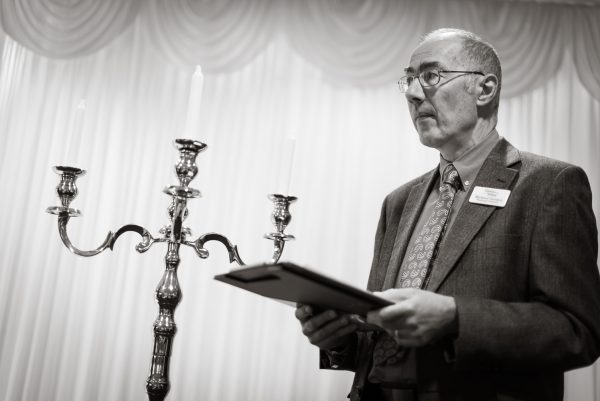
by Michael | May 14, 2018 | Blog
Can you imagine a wedding reception without speeches? Nor can I. Let’s have a close look at the groom’s speech.
It is an opportunity to help the guests know a little more about either or both of you – preferably, in a witty and enjoyable manner. It will also surely offer a public demonstration of your affection and excitement. So there is a lot to get right (and wrong).
I’ve written a couple of speeches both as an individual and as a civil celebrant, so I hope these hints will be helpful.
Elements
It is vital that the speech is not too long. Ten minutes will be about right. It should focus on the bride – what she means to you, possibly how you met and maybe an anecdote that shows why you chose her. Crucially, it should be sincere. Not to say that there can’t be humour too (more on this later).
Incidentally, don’t hold back from saying “my wife and I”, if you wish.
Of course, you need to thank everyone who contributed to the wedding (not just financially!). So it should be the parents of the bride, the participants (bridesmaids, ushers, etc.) and the guests. Absent friends may be mentioned here. Without overdoing it, a bit about the best man could go in (preferably, including a story about something you both got up to in the murky past!).
Delivery
Don’t rely on memory (especially on such a day), nor should you read out from a long script. Use notes or bullet-points, so you can make eye contact with your audience as much as possible.
However, when you talk about your new wife, say what attracted you, why you love her, relate an interesting/humorous episode. For this, you can address your remarks directly to her. And a compliment is unlikely to be taken amiss (your guests will love it too!).
Try and vary your delivery, so it is not monotonous.
Speed
However nervous you may be, slow down! Don’t mumble or gabble. Speak loudly and clearly. People will really want to hear what you have to say, so don’t frustrate or deprive them!
Humour
If you can start with a joke, then that is fine. However, ensure any joke you tell is funny – and that it is not crude or offensive. If you are hopeless at telling jokes, then it may be better to leave them out altogether.
If you are going for just one, then direct a gentle jest at your best man (NOT at your new in-laws, unless you are VERY sure that it is appropriate and that they will be OK with it! Definitely don’t get off on the wrong foot …).
I took a great risk at my wedding, because I chose to be quite rude about my new wife (but I did say some nice things too!). I got away with it (although, of course, I am still suffering the fall-out to this day!) because my comments were funny (no, really!), but it’s a dangerous game to play.
Finish
Once you’ve thanked everybody, told a story or two and possibly talked about your excitement at the prospect of your new life, stop while you’re ahead. Propose a toast to the bridesmaids and/or your wife and then pass the microphone to your best man.
Notes
- Don’t forget to thank your in-laws or whoever financed the affair. Thank your father-in-law for his speech (and for producing such a wonderful daughter). Thank everybody on behalf of your wife too. Make mention of guests from afar, or special guests, your in-laws and your own parents. Don’t thank caterers, florists etc. who will have been paid for their services. Try not to spend too long thanking people.
- Don’t read out long lists.
- Resist the temptation to get blind drunk before your speech!
- Check beforehand with your best man that there’s no clash or excessive overlap/repetition in what you are both going to say in your speeches.
Prepare thoroughly beforehand, remember the tips about delivery, and you will manage a wonderful speech that you will enjoy making and that your guests will love hearing.
Of course, if you want any further help, please speak to Michael.
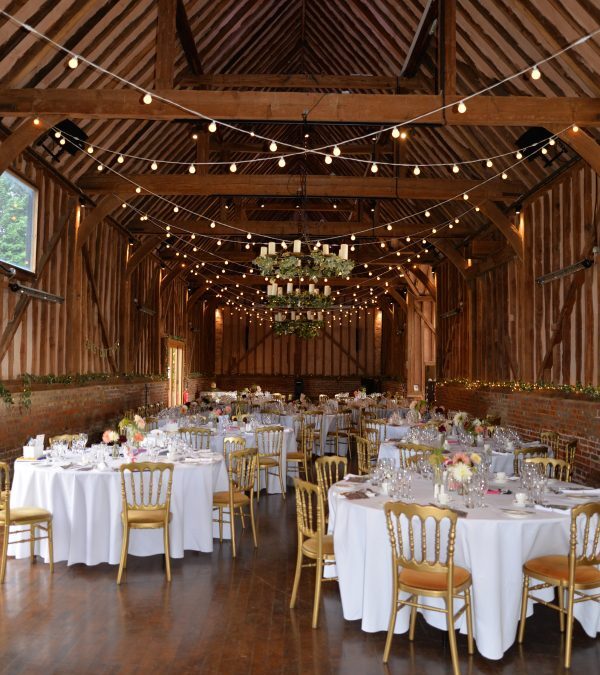
by Michael | May 14, 2018 | Blog
What a privilege! I’m so lucky, doing what I do. True, I don’t get to choose where I get to officiate. However, I end up at some glorious ceremony venues.
I could wax lyrical about many of them, in truth. However, I want to keep this to a manageable length, so will exercise self-restraint (for once).
Indoors
I loved the opulence of the Savoy. I thought the Oak Room at le Meridien hotel, Piccadilly, wonderful. Mill Hill Chapel was imposing without making you feel daunted. The winner, though, must surely be Lillibrooke Manor.
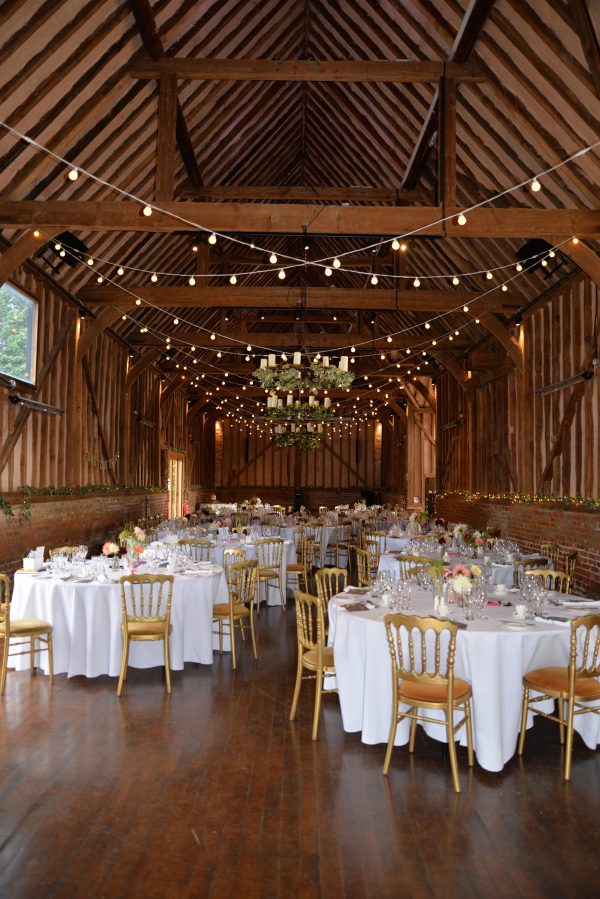
The Great Barn, Lillibrooke Manor
The current Manor House was constructed in about 1490, but the Great Barn is an unparalleled venue that is full of atmosphere.
Outdoors
Can you beat Stonehenge for an iconic setting?!
The day I conducted a ceremony there were Druids processing among the stones, so it made it even more special. I don’t know how you can top that.
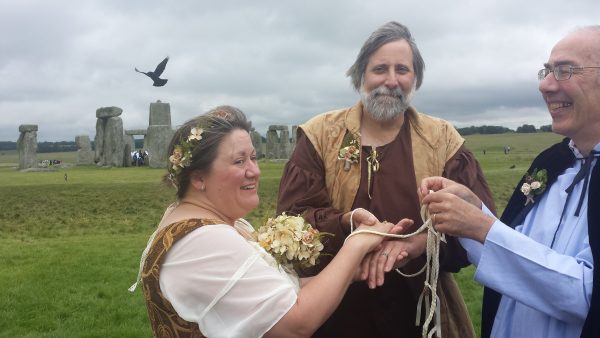
However, I was lucky enough to have a ceremony at Old Sarum. That is a lovely Iron Age fort overlooking Salisbury. This was actually my first wedding. I also remember it fondly because we avoided bad weather that January day.
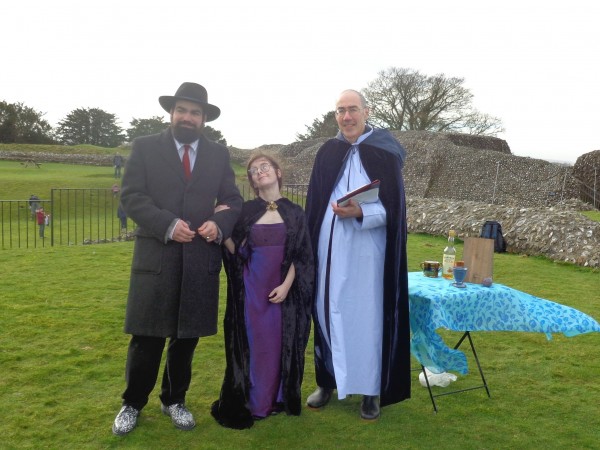
Finally, I assisted at a wedding at the Rollright Stones, in Oxfordshire. They are fairly remote and not particularly well-known. However, they are an impressive and atmospheric stone circle. They are pretty much complete and overlook a valley.
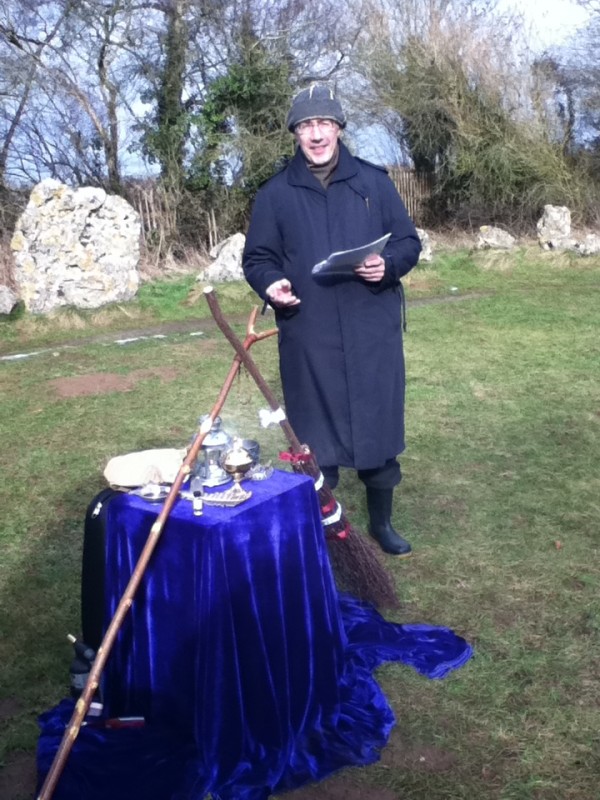
Perhaps the most stunning setting, though, came abroad, when I conducted a destination wedding at the Hotel Anassa, Cyprus. I have shown this picture below in several blogs, but make no apologies for repeating myself. It was glorious!
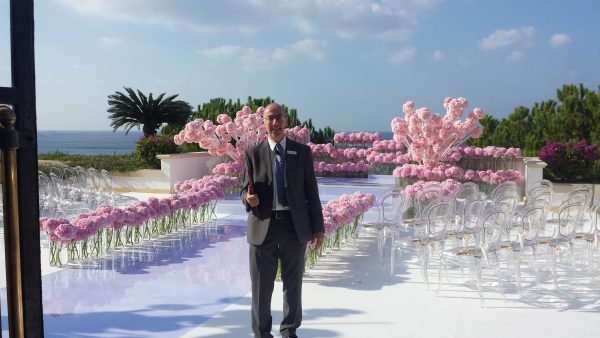
So which ceremony venues have you seen that have particularly struck you? Do please share them with me.
And if you’re planning a ceremony somewhere very special, I’d like to know about it too. (And if you want to take me there with you as your celebrant, I’d be more than interested to have a chat with you!)











